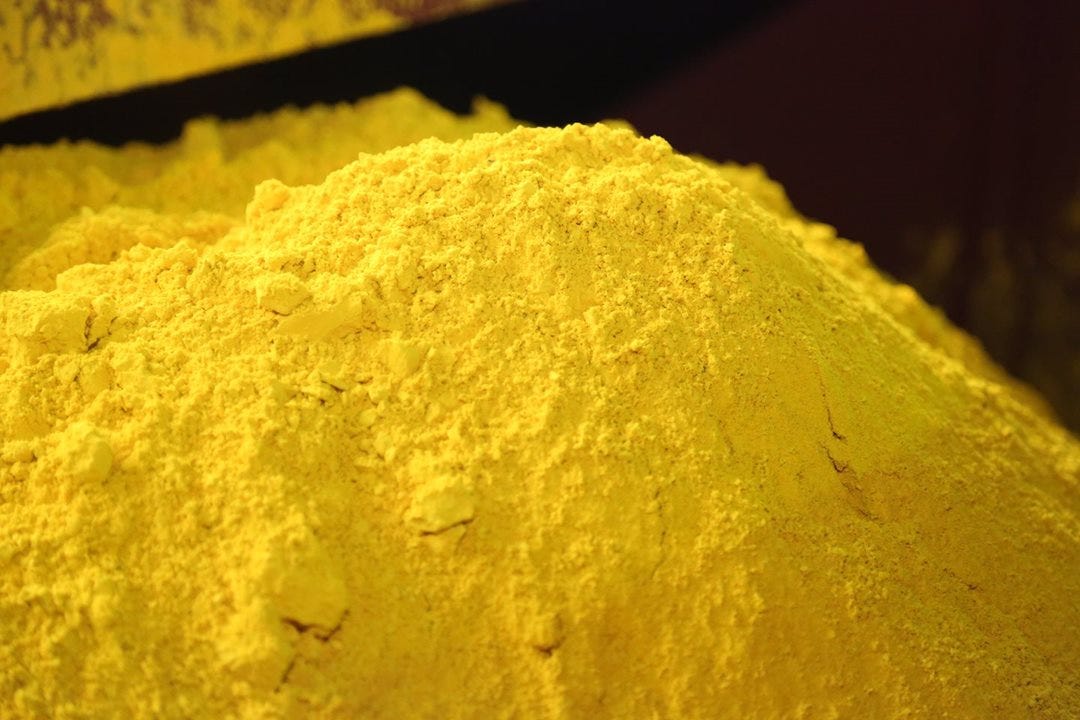🔋U Won't Leave Me Out
Import controls and subsidies aren’t just for renewables and batteries.
If you found this article interesting, click the like button for me! I would greatly appreciate it :)
Due to Russia’s invasion of Ukraine, many Western governments were not happy and pursued many strategies such as sanctions to discourage the war. In 2022, the US banned oil and gas imports from Russia. Later, a geopolitical blame game followed the sabotage of the Nord Stream pipeline which supplied a lot of oil and gas to Europe. Energy is the top industry in Russia, thus the theory is that by not buying energy supplies the country will have a harder time funding the war efforts. That brings us to a new bill recently signed into law, the Prohibiting Russian Uranium Imports Act.
While pretty self-explanatory, it specifically bans Russian low-enriched uranium (LEU), unless domestic reactors really need it. Then they can get a waiver signed by the Department of Energy (DOE) to keep buying from Russia. While this is a story in itself, it gets deeper because this also “unlocks” $2.7 billion to expand domestic enriched uranium supplies as part of one of the Ukraine funding packages.
The diagram below shows the different forms of uranium and enriched uranium. Out of the ground, uranium ore is less than 1% U-235 (the fissile isotope). 3-5% LEU is used in conventional reactors, providing ~20% of the US’s electricity. High assay low enriched uranium (HALEU) is enriched to 5-20% and is used for the newer advanced reactor designs that have yet to be commercialized. The only uranium enriched higher than 90% is used by the government for weapons or in naval reactors. HALEU can also be made from downblending high-enriched uranium.
This bill is significant because roughly a quarter of LEU comes from Russia, meaning they will need to search for other suppliers. Further, HALEU is currently only produced commercially by a Russian company Tenex. With the heightened distrust of Russia, the US hopes this will increase domestic production of LEU and HALEU.
The goal of the policy is clear, to stop helping Russia and its war efforts as well as boost domestic industry. This administration is not shy about its choice to choose domestic manufacturing over imports which has been seen even more clearly in the past with legislation, tariffs, and means of enforcement. It may take some time for utilities to secure alternative LEU supply leading to higher prices for some time. Fragmenting the supply chain also lowers prices for LEU outside the US since Russia lost a big source of demand. In this way, import controls both hurt domestic consumers and help foreign consumers. Time will tell if the boost in domestic production is worth it in the long run.
As far as HALEU is concerned, there is the common “chicken and egg” scenario. Without HALEU, advanced reactors cannot operate. Meanwhile, without advanced reactors, uranium enrichers would have no reason to produce HALEU. This is a common argument for why the government should get involved in economic matters. By subsidizing HALEU production, the advanced reactor companies can rest assured knowing that they have fuel and a runway to become successful companies. While I have argued for nuclear from a fundamental perspective, I don’t think interventions like this create a healthy market in the long run. The world we live in though is one of subsidies to all energy sources, whether it be fossil fuel, renewable, or now nuclear.
Allowed to function unhindered, the market would likely solve these problems on its own. For example, new uranium mines have been opening in the US primarily due to the increase in the price they can fetch for the ore. It would be disingenuous not to acknowledge that the industry is also getting some help from legislation like the Inflation Reduction Act, albeit smaller than for renewables or batteries. Either way, the more expensive uranium ore allowed these mines to be profitable and will serve as a new source of domestic supply, easing the supply/demand changes signaled by the rising price.
At the end of the day, the primary driving force behind these import controls and domestic subsidies is a protectionist one. Yes, the US wants more clean energy, but they want it as long as it isn’t from China or Russia. US politicians are using kinetic and economic warfare as grounds to implement their protectionist and anti-free market policies. These policies are not desirable from a market perspective but are preferred by the US government from a strategic and national security standpoint. If they continued to trade freely, it would deter both parties from escalating conflict. The US doesn’t like Russia and yet again uses the excuse of bolstering domestic industry to force large economic shifts, this time in the uranium market. Until next week,
-Grayson
Leave a like and let me know what you think!
If you haven’t already, follow me at TwitterX @graysonhoteling and check out my latest post on notes.
Socials
Twitter/X - @graysonhoteling
LinkedIn - Grayson Hoteling
Archive - The Gray Area
Let someone know about The Gray Area and spread the word!
Thanks for reading The Gray Area! Subscribe for free to receive new posts and support my work.





